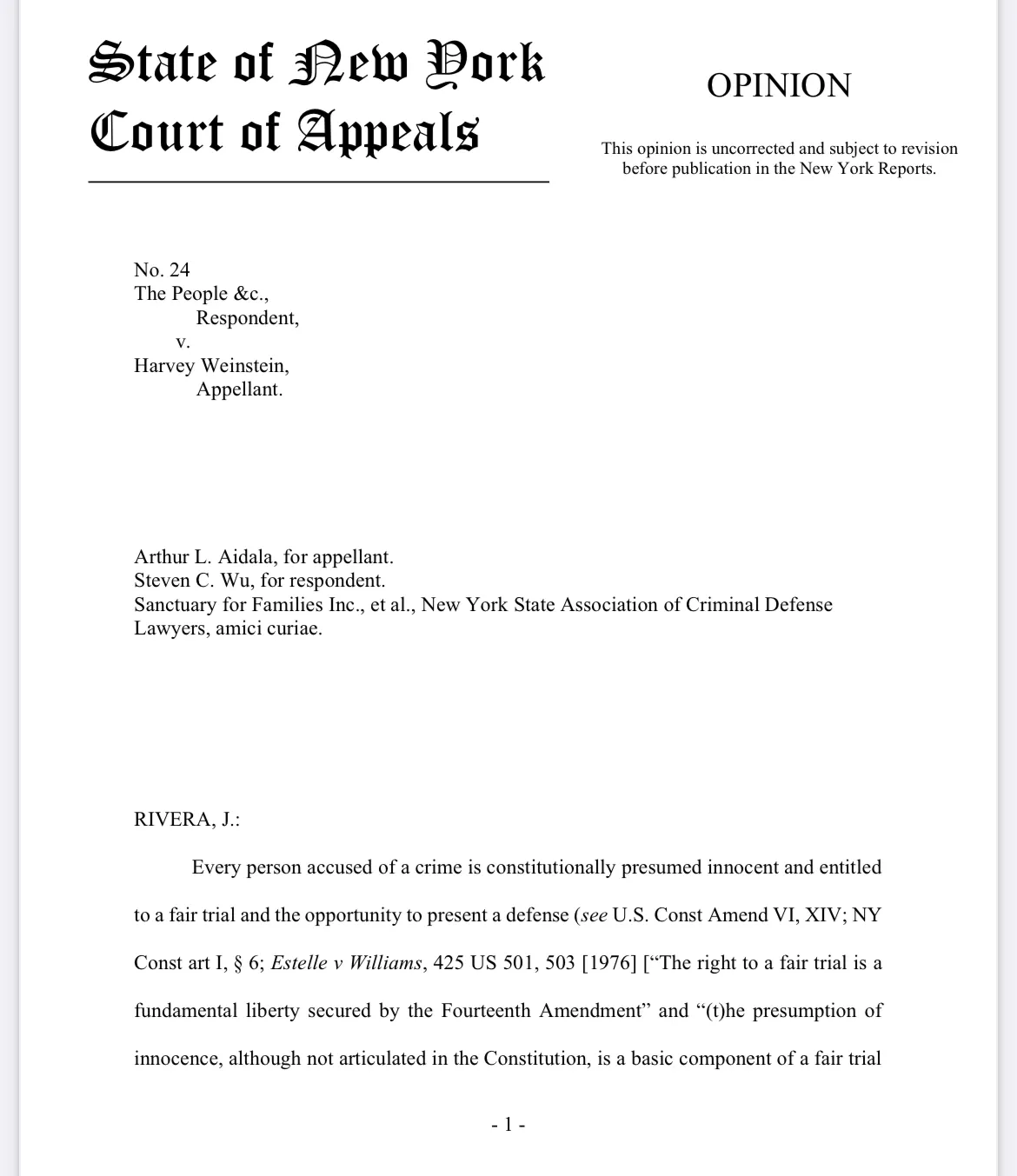by Alex Berenson, Unreported Truths:
 The New York State Court of Appeals made clear today: even unpopular defendants are entitled to fair trials. Will Juan Marchan, who is overseeing Trump’s trial, take heed?
The New York State Court of Appeals made clear today: even unpopular defendants are entitled to fair trials. Will Juan Marchan, who is overseeing Trump’s trial, take heed?
In the United States, we prosecute crimes, not people.
Arguably, this rule is the fundamental principle of our justice system. Doesn’t matter if a defendant volunteers every Sunday or has an affair every Tuesday. Defendants are accused of committing specific offenses. Prosecutors must prove their guilt without making the trial a referendum on their character or political views.
TRUTH LIVES on at https://sgtreport.tv/
On Thursday, New York state’s top court stood for that principle – in a case that may impact Donald Trump’s own felony trial in New York, which prosecutors are openly trying to make a referendum on Trump’s presidential victory in 2016.
In a 4-3 decision, the New York State Court of Appeals overturned the 2020 rape convictions of Harvey Weinstein, the movie executive who became the most notorious villain of the #MeToo era for his aggressive sexual behavior.
In a sharply worded 40-page opinion, the majority ruled Weinstein’s trial had been tainted because Justice James M. Burke, who oversaw it, allowed prejudicial testimony irrelevant to Weinstein’s alleged crimes. The court also found that Burke effectively kept Weinstein from testifying in his own defense by ruling that if he did, prosecutors could question him about irrelevant issues like a fight with his brother.
The majority opinion in the Weinstein case is a ringing endorsement of the principles that courts must uphold. It deserves to be quoted at length:
Under our system of justice, the accused has a right to be held to account only for the crime charged and, thus, allegations of prior bad acts may not be admitted against them for the sole purpose of establishing their propensity for criminality…
It is our solemn duty to diligently guard these rights regardless of the crime charged, the reputation of the accused, or the pressure to convict…
The only evidence against defendant was the complainants’ testimony, and the result of the court’s rulings, on the one hand, was to bolster their credibility and diminish defendant’s character… [while] the threat of a cross-examination highlighting these untested allegations undermined defendant’s right to testify. The remedy for these egregious errors is a new trial.
—
Thursday morning’s decision appears immediately relevant to the trial Donald Trump now faces in Manhattan for 34 felony charges of “falsifying business records” – that is, misclassifying an expense in his company’s own internal accounting ledgers.
I wrote on Monday and yesterday about the Trump trial. I don’t want to repeat the details of those articles now (you can read them yourself at the links above, and I want to get this piece out as soon as possible).
But the Weinstein and Trump cases share many similarities. Both Weinstein and Trump are wildly unpopular in New York and were accused of sexually aggressive or even predatory behavior.
Like Justice Burke, acting Justice Juan Marchan, who is overseeing the Trump trial, has given Manhattan prosecutors wide latitude to present evidence of actions that appear at best tangentially related to the crimes they are alleged to have committed. And like Burke, Marchan has ruled that if Trump decides to testify, prosecutors can cross-examine Trump on many issues unrelated to the case.
The appeals court criticized Burke sharply for that decision, finding that:
The trial court abused its discretion when it ruled that defendant, who had no criminal history, could be cross-examined about prior uncharged alleged bad acts and despicable behavior which was immaterial to his in-court credibility, and which served no purpose other than to display for the jury defendant’s loathsome character. The ruling necessarily and impermissibly impacted defendant’s decision whether to take the stand in his defense and thus undermined the fact-finding process in this case, which turned on the credibility of the parties.
Read More @ alexberenson.substack.com



